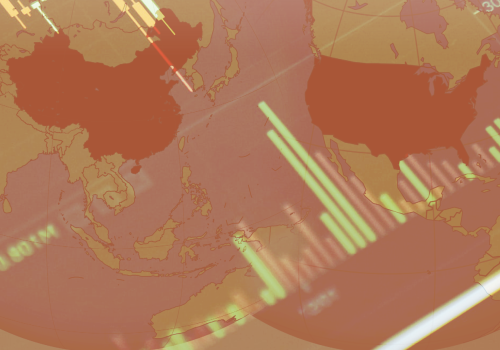Toward equitable debt contracts: Preventing de facto seniority-clause escalation in the sovereign lending space
The limitations of the Group of Twenty (G20) “Common Framework” have been extensively discussed and actionable solutions have been put forward. Tackling those limitations of the Common Framework is crucial for countries currently in debt distress, which experienced “significant delays” in the obtention of debt relief. As stressed by Kristalina Georgieva, managing director of the International Monetary Fund, “The framework can and must deliver more quickly.”
What’s hampering progress? Coordination issues, for one thing, but numerous voices also point to China’s role in hindering progress toward resolving the global debt crisis. The People’s Republic of China—a member of the IMF—has not only lent significant sums to borrower nations but also has the capacity to slow down processes because of the preferential terms in its lending agreements.
Overall, 147 countries—representing two-thirds of the global population and 40 percent of the world’s gross domestic product (GDP)—have either benefited from China’s Belt and Road Initiative (BRI) projects or shown interest in joining the program. By 2023, Chinese investment had begun to rebound since China’s zero-COVID policies, but China’s resistance to debt relief for its low-income borrowers will fuel sovereign defaults for years to come. China has spent an estimated $1 trillion through the BRI, thereby considerably strengthening its influence across Asia, Africa, and Latin America. Laos, for instance, owes almost half of its external debt (65 percent of its GDP) and is struggling to repay the debt that financed infrastructure like the high-speed Laos-China railway. China’s ownership of around 17.6 percent of Zambia’s external debt also slowed down Zambia’s debt restructuring negotiations significantly, contributing to a lengthy negotiation of two and a half years.
This piece outlines how China’s lending practices harm low-income borrowers and hinder debt restructuring negotiations through the use of debt clauses giving it de facto seniority. It further outlines ways for the Bretton Woods institutions to collaborate to change these dynamics and improve financing prospects of borrower countries and a more level field for lenders.
About the author
Lili Vessereau is a Research Scholar, Teaching Fellow and Fulbright Scholar at Harvard University, where she focuses on sovereign debt and macroeconomic impact of climate change.
Our work

At the intersection of economics, finance, and foreign policy, the GeoEconomics Center is a translation hub with the goal of helping shape a better global economic future.
Related content
Image: A truck is seen outside a tunnel, at the construction site of a new Chinese mega port, in Chancay, Peru August 22, 2023. REUTERS/Angela Ponce

